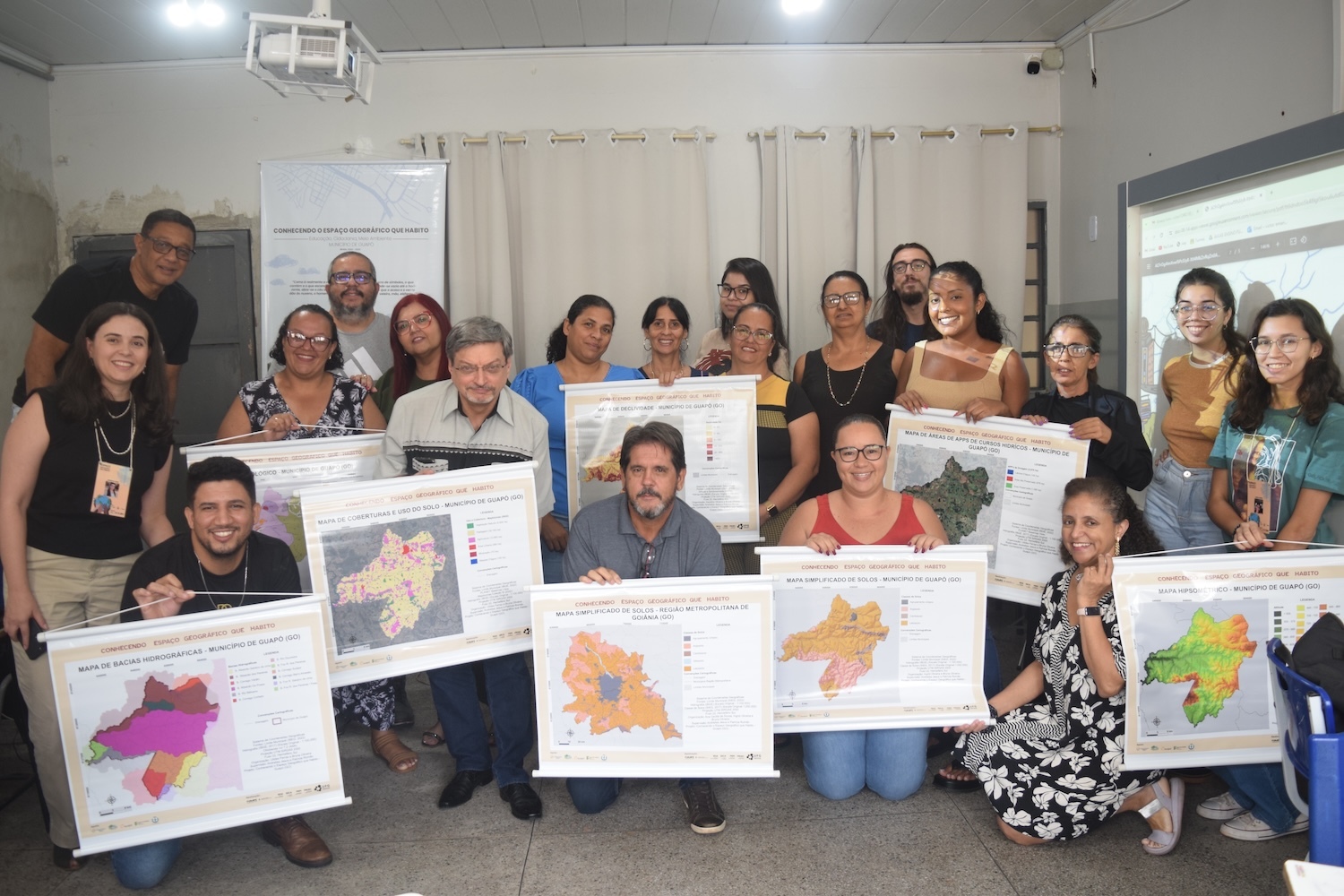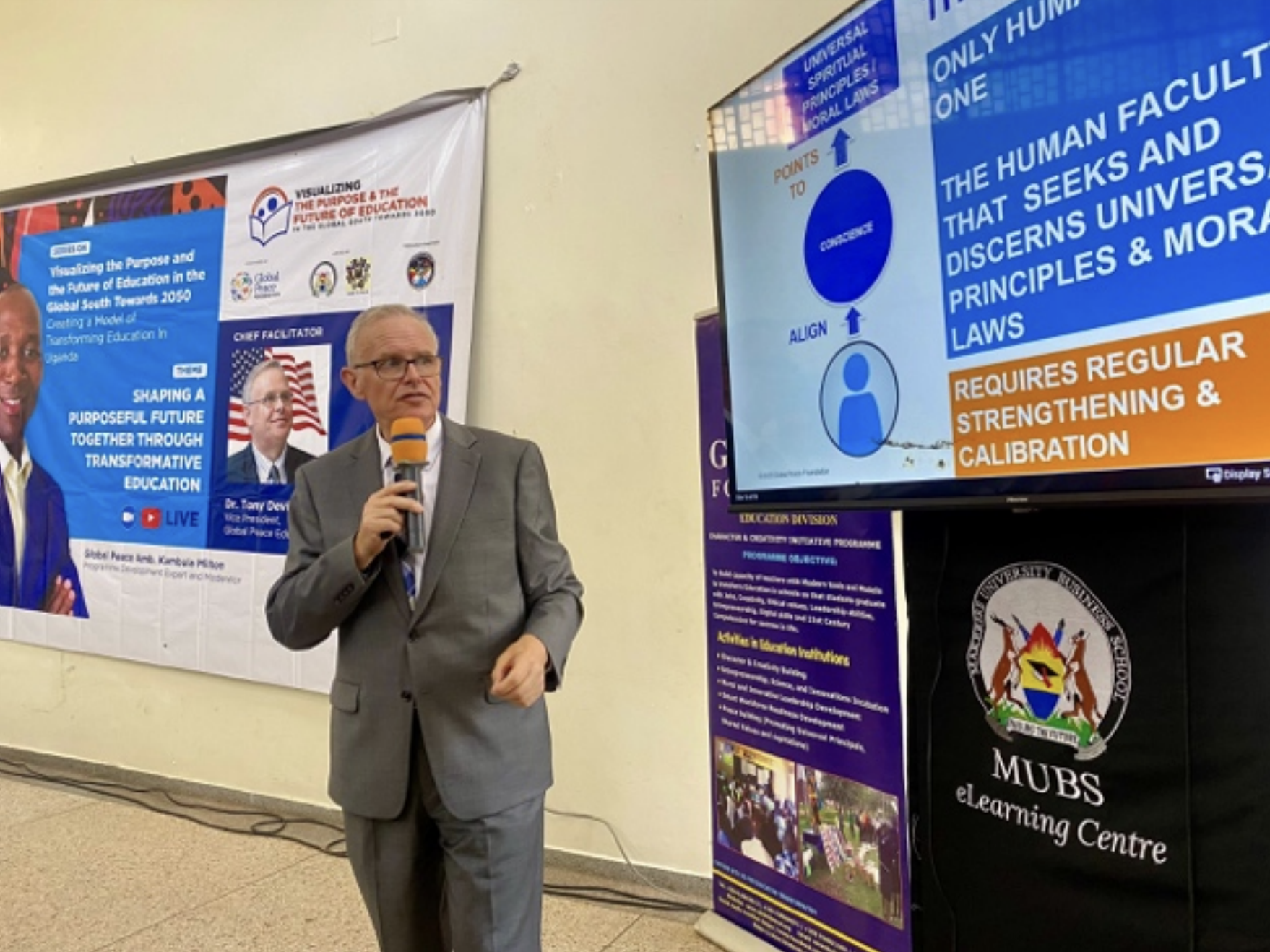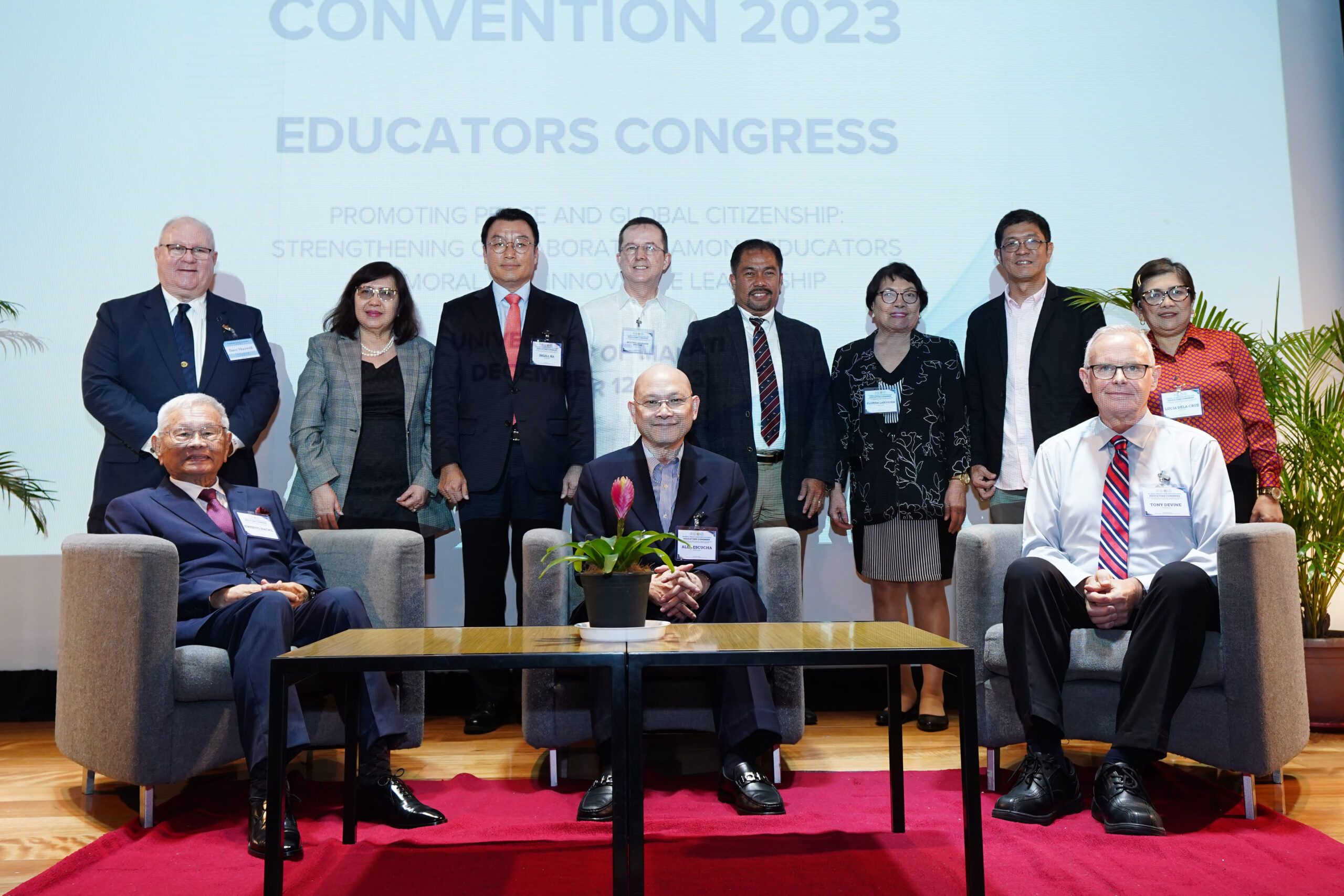By Naomi Yakawich
More than 100 educators, NGO representatives, business representatives, media and youth participated in a two-day 21st century education forum organized by Global Peace Foundation (GPF) Nepal’s education division. The event, held on February 3-4 addressed the theme, “Making Education Relevant to the 21st Century World: Bridging the Gap between Education and Employment.”
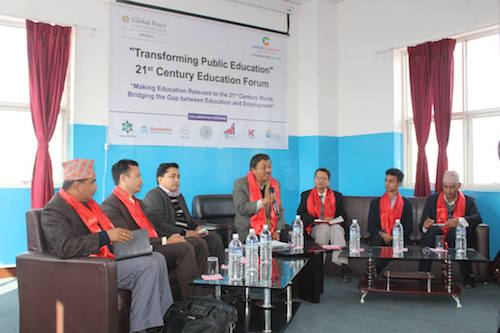
Educators, business representatives and government and development agencies confronted the employment-education gap in Nepal. “What the different stakeholders, parents and teachers have to realize is that we have to put the right attitude in our schools,” Mr. Sabin Joshi, CEO of CG Education, addressed attendees, “With the fancy certificate, you can get a job but trust me you cannot progress in your career with that alone. With the right attitude to learn, acquire skills and gain more knowledge, the sky is the limit. From the corporate world perspective, what is important is attitude. Unfortunately, we have the assessment for skills and knowledge but we don’t have the assessment for attitude.”
Throughout the forum, a diverse group of panelists discussed the existing situation and challenges of their respective sectors, emphasizing the need for schools to go beyond the standardized test scores and grade point averages to address students’ character and creativity. Mr. Diwakar Durdarshi, Principal of Shivapuri Higher Secondary School, encouraged collaborative efforts among those attending the education forum saying, “Education in Nepal is now more focused on exams rather than lifelong competencies. For this, the community, educators, parents and policy makers need to cooperate to transform learning and prepare students for today’s job market.”
“From the corporate world perspective, what is important is attitude. Unfortunately, we have the assessment for skills and knowledge but we don’t have the assessment for attitude.”
Ram Panta, Executive Director for GPF Nepal, emphasized the disconnection in what students are learning in schools and the competencies they need to be successful employees, entrepreneurs and responsible citizens. “The leadership of teachers will play a big role in transforming education and in this modern world, the combined Character and Creativity Quotient is more important than IQ for a person to succeed,” he said.
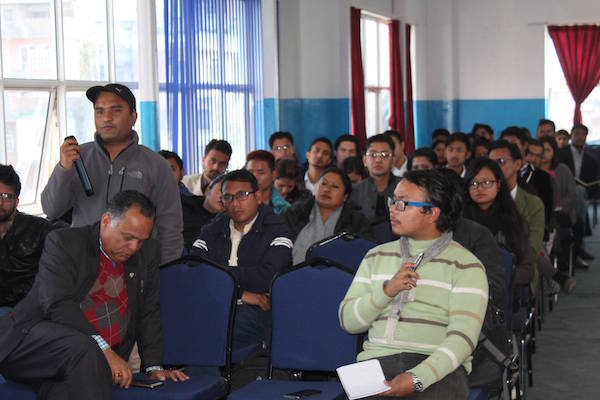
One student, Mr. Suraj Raj Pandey, voiced out his concerns, “During policy making and implementation, policy makers and executing authorities should include the voice of the students. The students are the long-forgotten stakeholders of the education system. They should be provided with the kind of education required to be able to succeed in life.”
Mr. Narayan Krishna Shestha, Under Secretary of Ministry of Education, expanded on the topic of government policy to improve the quality of education in Nepal, “Education plays a vital role in the development of a person. Therefore, the Ministry of Education is committed to fulfill the SDG goals of quality education and lifelong competencies that children need to learn.”
In conjunction with the discussion panels, the forum also included workshops on a variety of education topics that addressed problem-solving skills, cooperative learning environments, Character and Creativity, teaching empathy, Entrepreneurship in Education, and Growth Mindset. Mr. Babu Kaji Shrestha, Chairperson of Global Action Nepal advanced the importance of defining education in the modern world. “We can neither ignore our own country’s context or global phenomena. Education curriculum ought to be designed in such a way that unfolds children’s potential and help them gain opportunities to learn knowledge and critical skills.”
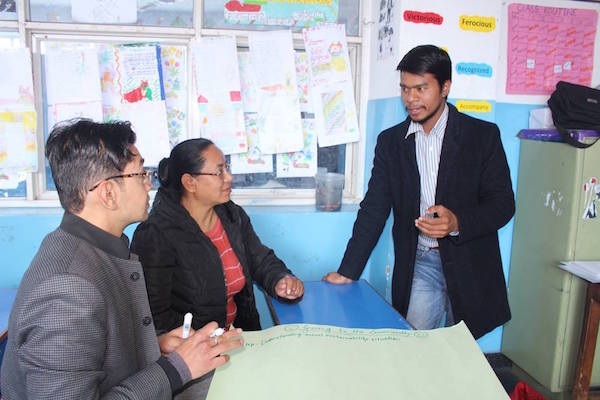
Teachers and principals shared their appreciation for the program. Principal Mrs. Jit Kumar Rana expressed her thanks saying, “This training has helped me a lot with how to integrate skill-based education in our curriculum to develop needed human resources in the country and as a global citizen. I am always working to provide better education in my school and this program has given me many ideas that I can use.”
“The workshops are very practical with tools we can use in our classrooms as well as in solving real-life problems,” said Mr. Trish Dixit, “I look forward to more programs of this kind to be conducted in the future.”
This GPF education forum was organized in collaboration with Global Action Nepal, Kanjirowa National High School, Kullabs, Kings College, Shree Banodhaya School, Centre for Environment Education and Lumbini World Peace Forum.

